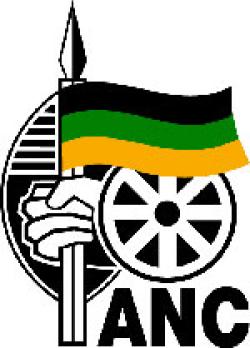
Published date
26 June 1950
In 1950 the apartheid government introduced the Unlawful Organisations Act and the Suppression of Communism Act. In March 1950 the African National Congress (Transvaal), the Communist Party of South Africa, the Indian Congress and the African People Organisation organised a "Freedom of Speech Convention" in Johannesburg. The Convention was called to protest the Suppression of Communism bill and a ban imposed on Dr. Dadoo and Sam Khan prohibiting them from speaking in certain cities. 500 delegates attended the Convention and 10.000 people attended the rally afterwards. At the convention it was decided that a series of protests marches and meetings would be held across the country culminating in a national "stay at home" on the 1st May.
The ANC youth league viewed the call for the stay at home on 1st of May as undermining their own plan to for a general strike on 1st May and actively set about disrupting meetings held by the Convention organizers.In response to the 1st May call to "Stay at Home", the government banned all meetings and sent police reinforcements to Johannesburg. However, the protest went on and on 1 May the police attacked gatherings of protesters. For the first time since the 1921 Bulhoek Massacre the police opened fire on the protesters killing 18 and wounding 30 people.
The Suppression of Communism Act was to be approved in Parliament shortly after, and the CPSA was forced to dissolve. The then ANC President, Dr J.S Moroka, called an emergency meeting of the ANC's National Executive Committee. The Committee decided that, for the first time in the Party's history the ANC would call for a day of mourning and a general strike on 26 June 1950 in protest of the 1 May killings and the Suppression of Communism Act. This call was supported by the African People's Organisation and the South African Indian Congress. Since this nation-wide protest, June 26 has been observed annually by the African National Congress and allied organisations as South Africa Freedom Day.
Since the 1950 protests, many of the campaigns of the liberation movement have been launched on this day. The historic Defiance Campaign against unjust laws in which 8,000 people went to jail was inaugurated on 26 June 1952.
It was this campaign that led to the consideration of apartheid by the United Nations General Assembly. The Congress of the People, with nearly 3 000 representatives from the ANC and Indian, Coloured and White organizations, was also held on 26 June in 1955 and adopted the "Freedom Charter" which represents the aspirations and demands of the people of South Africa. Subsequently all the members of the Congress Alliance adopted the Freedom Charter in their national Conferences as their official program. That historic document declared that "South Africa belongs to all who live in it, black and white" and that "no government can justly claim authority unless it is based on the will of all the people." Since 1994 Freedom Day has been celebrated on 27 April, in commemoration of the first democratic elections held in South Africa in 1994.
References
June 26: South Africa Freedom Day [Online]. Available at: anc.org.za [accessed 25 June 2010]|Hermann Giliomee and Bernard Mbenga (2007). New History of South Africa. Tafelberg Publishers, Cape Town, pg 326